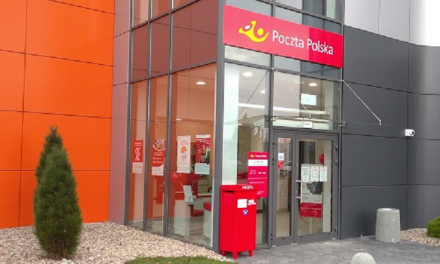
Parcels now bigger business than letters for New Zealand Post

New Zealand Post has hailed an improved financial performance in the past 12 months, as its parcels business surpassed the letters business in revenue generating ability for the first time. The state-owned postal operator grew its underlying net profit after tax 11% compared to last year, to NZ $124m in the year up to the end of June.
The improvement came thanks to the Group’s cost-cutting efforts, growth in the logistics and parcels business, and the “steady” results of postal bank Kiwibank.
Operating costs fell 7.3% during the 2014 fiscal year, to NZ 1.5bn, but revenue slipped by 1.6% compared to 2013, to NZ $1.69bn.
Group chief executive Brian Roche said the result was an “encouraging validation” of his company’s five-year transformation strategy, Delivering our Future.
But, he said transformation of the company would continue under the aim of rebuilding “sustainable profitability”.
Roche said: “For the first time in New Zealand Post’s history, revenue from packages and parcels has exceeded revenue from letters. This marks a significant moment for us and reinforces the need to make the changes we have embarked upon.
“We will continue to invest in an integrated parcels, logistics and letters business, move non-corporate retail outlets to a ‘store within a store’ basis and seek parcel growth and ecommerce opportunities as letter volumes drop further.”
During the year, New Zealand Post’s domestic letter volumes fell by about 7% to 642m items. The company predicts they will be handling only 500m letters a year by 2017.
Kiwibank achieved a 3% improvement in profit after tax, to NZ $100m, as its personal banking market share grew from 10.3% to 11%. The postal bank is moving towards self-sufficiency, gaining a final $40m equity investment from New Zealand Post in 2014.
Strategy
New Zealand Post’s five-year strategy was launched last November. The plan called for a streamlining of the company, including the loss of 18% of the 10,600-strong work force over the initial three years.
The strategy also called for a redirection of investment towards the e-commerce parcels business and financial services.
Plans for managing the ongoing decline in the letters business include reducing the frequency of delivery to as little as three days a week in some urban areas, although priority mail will continue to be delivered any day of the week.
New Zealand Post is also reduced the scale of its processing infrastructure, consolidating its six sorting centres into just three facilities.
Roche said overall he was satisfied with progress made during the latest year.
“The changes we have made are starting to flow through in our financial performance and we expect further improvements from these changes over time,” he said.
“However, the continuing decline of letter volumes here and overseas and a highly competitive environment for banking and parcels means we cannot afford to take our foot off the accelerator. Our total focus on successful implementation of the strategy will continue in 2015.”
“Not in crisis”
Commenting on the latest financial performance at New Zealand Post, the Engineering, Printing and Manufacturing Union said the profit performance showed the company was “not in crisis” and that it could therefore carefully consider any future job losses.
The union, which represents more than 3,000 postal workers, said the Group’s profit showed there was “no rationale for drastic job cuts”.
Joe Gallagher, the EPMU industry organizer for NZ Post, said: “We want Post to take their time with any future restructures. Even though the industry is changing, New Zealand Post is a vital public service. We want Post management to ensure the company is set up to be sustainable, and provide full-time, meaningful employment to its workers.”













